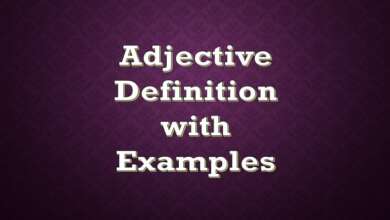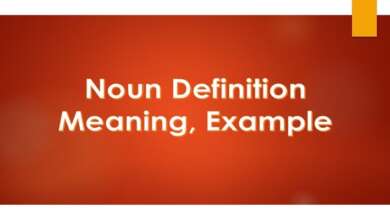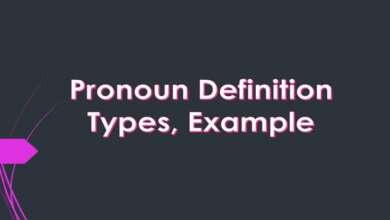Verb Definition In English, Examples, Meaning, Types | PDF
Verb Definition In English, Examples, Meaning, Types
Verb Definition In English, Examples, Meaning, Types (Download PDF) – The verb is an important part of Parts of Speech that is not very difficult to understand. We have explained it in simple words with examples. By reading this you can understand well what the contribution of the verb in the sentence is.
The verb has two forms
(A) The Main verb, (B) Auxiliary/Helping verb.
Today we will understand the definition with an example of how we use both these verbs in sentences.
Definition of verb
The words that give an idea of doing or being done by the doer are called verbs. Like – laughing, speaking, playing, walking, reading, writing, going, eating, drinking,
Let us understand by example-
- Ramesh studies.
- Suresh writes.
- Kamlesh goes.
- Ramesh eats.
In these sentences, Ramesh, Suresh, and Kamlesh are the subject and the underlined words in all four sentences are the work to be done by the subject. Their function is to read, write, move, and eat, the words describing the work are called verbs.
Therefore, the words which give an indication of doing or being done by the doer are called verbs. For example, speaking, playing, walking, singing, bringing, reading, writing, going, eating, drinking, laughing, carrying, staying, etc. are verbs.
All these words are called common forms of verbs, to give a general form to the verb, the suffix ‘ing’ and the prefix ‘to’ is used.
Read also – Adjective definition with examples
Definition of Helping verb
The word which takes the help of the verb is called the auxiliary / helping verb. In simple words (a verb in a sentence has to take the help of another word for its completeness)
We know that verb is an important part of the sentence. The subject is of no use without a verb. Any sentence is completed by a verb. Therefore, the verb in the sentence has to take the help of another word for its completeness. The word which takes the help of the verb is called an auxiliary verb.
For example –
- Mahesh has written a letter.
- Santosh is reading the book.
- Ram has gone out.
- He had plucked the flowers.
In all these sentences, each verb is accompanied by an auxiliary verb. ‘Written’ I ‘Written’ is the main verb ‘has’ is the helping verb. Similarly – is, is, am, be, was, was, shall, will, etc. are called auxiliary verbs.
Read also – Noun definition with examples
Types of Verbs
On the basis of the operation of the action and the result obtained by it, there are two types of verbs.
(A) Intransitive verb, (B) transitive verb.
(A) Intransitive verb – We have studied action in the causal process. The result of the action on which it falls is ‘Action’. But there are many verbs that do not have ‘Action’. A verb without ‘Action’ is intransitive.
Therefore, those actions without action, whose action or result falls on the doer, are called intransitive verbs. For example, Ramesh laughs. In this sentence ‘laugh’ is the verb. What makes you laugh? There is no answer to this. Who laughs? The answer is – Ramesh. Ramesh is the subject of this sentence.
Hence the direct result of ‘laughs’ falls on Ramesh (the doer). Thus – dying, speaking, laughing, crying, living, sitting, shying, sleeping, etc. are intransitive verbs.
(B) Transitive verb – transitive means with action or containing action. There are some actions that have a direct effect on the action. Therefore, the actions in which the result of the operation of the action falls on the action by leaving the doer, are called transitive verbs.
In a sentence with a transitive verb, there is also a subject and an action. For example, students write essays. In this sentence ‘write’ is the verb, and ‘student’ is the subject. What do students write? Answer – Essay. Hence the result of the verb ‘write’ is ‘essay’. ‘Essay’ is action.
For example –
- The police beat up the thief.
- Ram reads the book.
- The boy drinks milk.
- Geeta cooks food.
In all these sentences beating, reading, drinking, and baking, the result of the verbs falls on the thief, book, milk, and food, respectively. In addition to these, bring, beat, beat, knock, remove, see, ask, break, so much, find, pick up, etc. are transitive verbs.
Download PDF – Click Here



